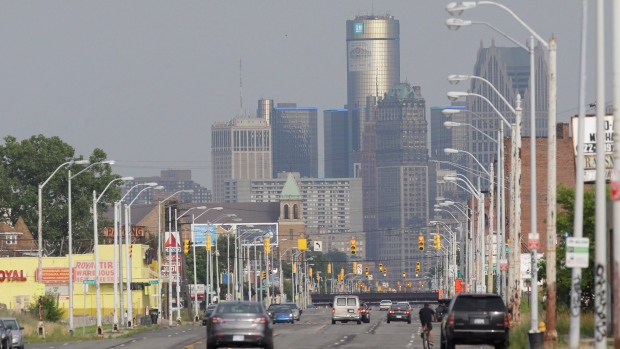Jan 17, 2017
Investments from the Big Three since Trump’s election and what’s at stake for Canada
, BNN Bloomberg

Since Donald Trump was elected on Nov. 8 as the 45th president of the United States, multiple automakers have announced plans to invest more in their U.S. operations or withdraw production from of other countries.
Trump, who will be officially sworn in as president Friday, has been publicly critical of automakers building vehicles in Mexico.
Here’s a breakdown of the investments made by Detroit’s Big Three auto companies since Trump’s election, and what the decisions could mean for Canada’s auto sector.
GM
General Motors Co (GM.N) is the latest company to announce plans to invest more in its U.S. operations. On Tuesday, the automaker said it would put an additional US$1 billion into American factories this year, and move some parts of production out of Mexico. The company said this money, which is in addition to the US$2.9 billion the automaker announced last year, will create or retain 1,500 jobs.
"[GM’s] general plan is to build where we sell, and we're focused on what we're doing in the United States," Chief Executive Mary Barra told Reuters on Monday. Barra said GM wants to work with Trump, adding, "I do believe we have more in common than we have areas that we aren't aligned."
Tony Faria, director of the Office of Automotive Research at the University of Windsor told BNN the move by GM is positive for Canada’s auto sector.
“Because [the Detroit Three] plants are very close to Ontario, probably all of them are receiving some parts in shipment on an ongoing basis from suppliers within Ontario,” he said Monday in an interview. “In general, investments in plants in this region of the U.S. is a positive for Canadian suppliers – much more so than investments going into plants in Mexico or into the southern U.S.”
FIAT CHRYSLER
Fiat Chrysler Automobiles (FCAU.N) said on Jan. 8 it will invest US$1 billion to modernize two plants in the U.S. Midwest and create 2,000 jobs.
Chief Executive Sergio Marchionne said the company may end Mexican production if tariffs set in a Trump administration on vehicles made in Mexico and imported to the United States are too high.
Even though he didn’t mention Fiat specifically, Tom Caldwell, Chairman at Caldwell Securities, warned Trump’s influence and uncertainty could have a detrimental impact on Canada’s auto sector.
“We still don’t know what Mr. Trump is going to do that can be damaging here – our automobile sector is not sacrosanct in American eyes,” he told BNN in an interview earlier this month. “We are definitely on the target list – make no mistake.”
Trump once again took to Twitter, expressing his excitement over Fiat’s announcement.
FORD
On Jan 3., Ford Motor Co (F.N) was the first of the Big Three companies to announce it would scrap some planned operations in Mexico, saying that instead of investing a $1.6 billion factory in Mexico, it would put in US$700 million at a Michigan factory.
However, Ford Chief Executive Mark Fields said the decision to cancel the Mexico factory was the result of low demand for small cars in North America -- not because of Trump.
Still, the president-elect reacted to the news by praising Ford in a tweet. He wrote: “Thank you for scrapping a new plant in Mexico and creating 700 new jobs in the U.S.” He warned there would be “much more to follow.”
Ford’s decision likely won’t impact Canada, according to Joe Hinrichs, President of The Americas at Ford Motor Company. He told BNN last week that there wouldn’t be any changes to plans in its Canadian plants, pointing to recent investments in Windsor and Oakville, Ont.
“Our investment in Canada continues, our plans continue as they are, and I don’t see any changes happening to that anytime soon,” he said.



